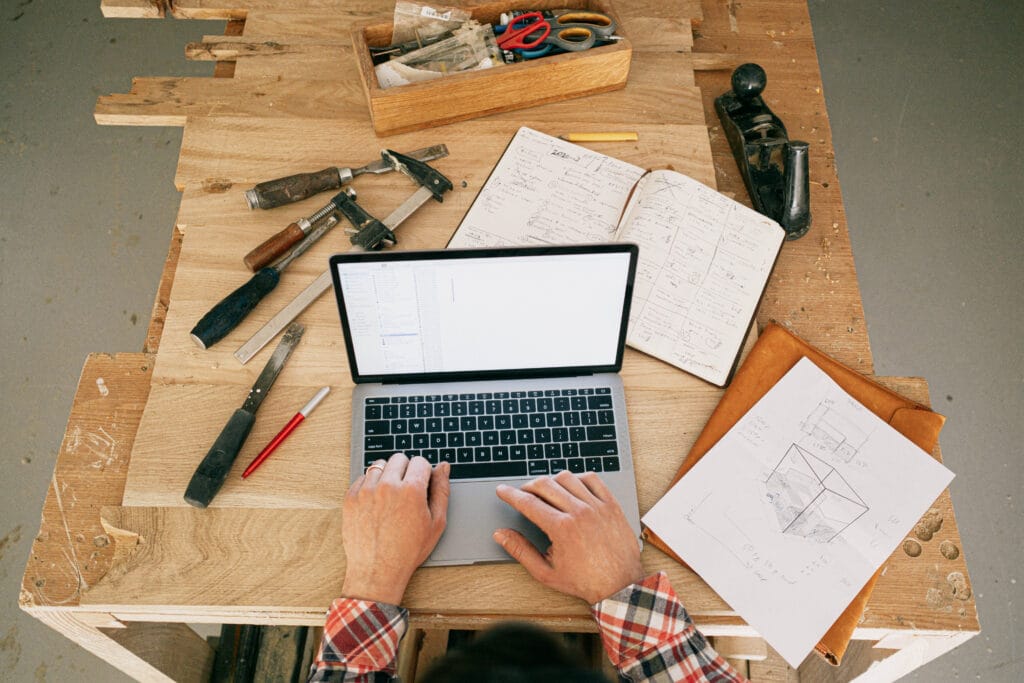
Top Driveway Replacement Options and Their Costs in Charlotte
Share:
Choosing the right driveway replacement is crucial for enhancing your home’s curb appeal and functionality. With various materials available, from concrete to gravel, each option offers unique benefits and cost considerations. Understanding these factors can help you make an informed decision that suits your budget and aesthetic preferences. This guide explores the top driveway replacement options, detailing their advantages, installation processes, and associated costs. Whether you prioritize durability, design, or eco-friendliness, this comprehensive overview will help you select the best driveway replacement to meet your needs and enhance your property’s value.

Concrete Driveways
Benefits of Concrete Driveways
Durability and Low Maintenance
Concrete driveways are renowned for their exceptional durability. They can withstand heavy loads and resist wear and tear from harsh weather conditions. This longevity makes concrete a cost-effective choice in the long run, as it requires fewer repairs and replacements compared to other materials. Moreover, concrete driveways are low maintenance, needing only occasional cleaning and sealing to maintain their appearance and functionality.
Versatile Design Options
One of the significant advantages of concrete driveways is the versatility in design. Homeowners can choose from a variety of finishes, colors, and patterns to complement their home’s exterior. Stamped concrete can mimic the look of brick, stone, or tile, offering a high-end appearance without the associated costs. This customization potential allows for creative designs that enhance curb appeal.
Environmental Benefits
Concrete driveways are also environmentally friendly. They can be made from sustainable materials and often have a longer lifespan than other options, reducing the need for frequent replacements. Additionally, concrete’s light color reflects sunlight, reducing the urban heat island effect and contributing to cooler temperatures in surrounding areas.

Cost Breakdown
Concrete driveways are a durable and long-lasting option, but their initial cost can be higher than other materials. On average, installing a concrete driveway costs between $4 to $10 per square foot. Factors influencing this cost include the complexity of the design, thickness of the slab, and any additional features such as decorative finishes or stamping.
Material Costs
The primary component of a concrete driveway is, of course, the concrete itself. The cost of concrete varies based on the quality and mix, generally ranging from $75 to $150 per cubic yard. Adding decorative elements such as color or stamping can increase the cost by $2 to $15 per square foot, depending on the complexity and type of decoration.
Labor Costs
Labor is a significant portion of the overall expense for a concrete driveway. Skilled laborers are needed to properly mix, pour, and finish the concrete to ensure durability and aesthetics. Labor costs typically range from $2 to $4 per square foot. Additional factors, such as site preparation, excavation, and the use of reinforcing materials like rebar or wire mesh, can further influence labor costs.
Long-Term Cost Considerations
While the upfront costs of a concrete driveway may be higher, its longevity and low maintenance requirements can offer cost savings over time. Concrete driveways can last 30 years or more with proper care, reducing the frequency and cost of replacements compared to other materials. Regular sealing, which costs around $0.50 to $2 per square foot, helps maintain the driveway’s appearance and extends its lifespan.

Asphalt Driveways
Benefits of Asphalt Driveways
Cost-Effectiveness and Quick Installation
Asphalt driveways are a popular choice due to their cost-effectiveness. They are generally less expensive to install than concrete driveways, making them an attractive option for budget-conscious homeowners. Additionally, asphalt can be laid quickly and used shortly after installation, which minimizes disruptions to your daily routine. This quick turnaround time is especially beneficial for busy households and commercial properties that require prompt access.
Good Performance in Various Weather Conditions
Asphalt is known for its flexibility, which allows it to withstand freeze-thaw cycles and other weather-related stresses without significant damage. This makes it an ideal choice for regions with fluctuating temperatures. The dark color of asphalt also absorbs heat, helping to melt snow and ice faster in winter conditions. This can improve safety and accessibility during cold months, providing a practical advantage over other materials.
Ease of Maintenance and Repairs
Maintaining an asphalt driveway is relatively straightforward and cost-effective. Minor cracks and damage can be easily repaired with patching, and a regular sealcoating can extend the driveway’s lifespan. Sealcoating helps protect the asphalt from the elements, preventing water infiltration and oxidation, which can lead to cracks and potholes. This maintenance routine ensures that your driveway remains in good condition for many years.
Cost Breakdown
Asphalt driveways are known for their affordability and quick installation. The cost to install an asphalt driveway typically ranges from $2 to $5 per square foot, making it a cost-effective option for many homeowners. Several factors influence the overall cost, including material prices, labor charges, and ongoing maintenance requirements.
Material Costs
The cost of asphalt material is relatively low compared to concrete. On average, asphalt costs around $100 to $200 per ton, with the exact price depending on the quality and type of asphalt used. Additional materials, such as gravel for the base layer and sealants, can add to the overall expense. Including a gravel base can range from $1 to $3 per square foot.
Labor Costs
Labor costs for asphalt driveways are typically lower than those for concrete. This is due to the faster installation process, which requires less time and fewer specialized skills. Labor costs usually range from $2 to $4 per square foot, including site preparation, grading, and compacting the base layers. The total labor cost may vary depending on the project’s complexity and the contractor’s expertise.
Long-Term Cost Considerations
Although asphalt driveways are cheaper to install, they require more frequent maintenance to ensure longevity. Regular sealcoating, which costs around $0.20 to $0.30 per square foot, is essential every few years to protect the asphalt from weather damage and extend its lifespan. Additionally, minor repairs for cracks and potholes are necessary to prevent larger issues, adding to the long-term maintenance costs.

Paver Driveways
Why Choose Paver Driveways?
Aesthetic Appeal and Customization
Paver driveways offer unmatched aesthetic appeal with endless customization options. Available in various colors, shapes, and sizes, pavers allow homeowners to create unique patterns and designs that enhance the visual appeal of their property. Whether aiming for a classic look or a modern design, pavers can be tailored to fit any style, boosting curb appeal and increasing property value.
Durability and Longevity
Paver driveways are known for their exceptional durability. Made from concrete, brick, or natural stone, pavers can withstand heavy loads and resist cracking, even under extreme weather conditions. Their interlocking design allows for flexibility, which helps prevent damage from ground movement. This durability translates to a longer lifespan with minimal maintenance, making pavers a cost-effective choice over time.
Ease of Repair
One of the significant advantages of paver driveways is their ease of repair. Unlike concrete or asphalt, individual pavers can be replaced without disturbing the surrounding area. This makes repairs simple and cost-effective. If a paver becomes damaged or stained, it can be easily removed and replaced, maintaining the driveway’s overall appearance and functionality.
Cost Considerations
Paver driveways, while offering numerous benefits, come with higher initial costs compared to other driveway materials. The price typically ranges from $10 to $30 per square foot, depending on the type of pavers and the complexity of the design. This includes the cost of the pavers themselves, which can vary based on material (concrete, brick, or natural stone) and quality.
Material Costs
The cost of paver materials significantly impacts the overall price of the driveway. Concrete pavers are generally the most affordable, while natural stone pavers are the most expensive. The choice of material will depend on your budget and aesthetic preferences. Additionally, opting for custom or unique designs can increase the material costs.
Labor Costs
Labor is a major factor in the overall cost of a paver driveway. Installation requires skilled labor to ensure proper alignment and stability, which can add $5 to $15 per square foot to the total cost. The complexity of the design and the need for site preparation, such as excavation and grading, also influence labor expenses.
Long-Term Cost Considerations
While the upfront cost of a paver driveway is higher, the long-term benefits can offset the initial investment. Pavers are highly durable and require minimal maintenance, reducing repair costs over time. Their ease of repair also means that individual pavers can be replaced without redoing the entire driveway, saving money on major repairs.

Gravel Driveways
Pros of Gravel Driveways
Low Initial Cost
Gravel driveways are among the most cost-effective options available, with installation costs typically ranging from $1 to $3 per square foot. This affordability makes them an attractive choice for homeowners looking to upgrade their driveway without a significant financial investment. Additionally, the material costs are relatively low, as gravel is readily available and easy to source.
Easy Installation and Maintenance
Installing a gravel driveway is straightforward and can often be completed as a DIY project, saving on labor costs. The process involves laying down a base layer of larger stones, followed by a top layer of smaller gravel. Maintenance is also minimal, primarily requiring periodic replenishing of gravel and occasional raking to keep the surface level and free of debris. This ease of maintenance ensures the driveway remains functional and attractive with minimal effort.
Excellent Drainage
One of the significant advantages of gravel driveways is their excellent drainage capabilities. The loose gravel allows rainwater to seep through, preventing puddles and reducing the risk of flooding. This makes gravel an ideal choice for areas prone to heavy rainfall or poor drainage. Additionally, proper drainage helps maintain the integrity of the driveway and surrounding landscape, reducing erosion and promoting a healthier environment.
Cost Factors
Gravel driveways are one of the most affordable options for homeowners, but several factors can influence the overall cost. Typically, installation costs range from $1 to $3 per square foot. Key cost factors include the type and quality of gravel, site preparation needs, and the driveway’s size and shape.
Type and Quality of Gravel
The type of gravel chosen significantly impacts the cost. Common options include crushed stone, pea gravel, and quarry process. Higher quality or decorative gravel will increase the price. The cost also varies depending on the local availability of gravel.
Site Preparation
Site preparation is crucial for a stable and durable gravel driveway. Costs can increase if the site requires extensive grading, removal of old pavement, or installation of a new base layer. Proper preparation ensures good drainage and longevity of the driveway, making it a worthwhile investment.
Size and Shape of the Driveway
The overall size and complexity of the driveway design affect the total cost. Larger driveways require more materials and labor, while intricate designs or slopes may need additional work to ensure stability and proper drainage. These factors should be considered when planning your budget.

Installation Guide
Installing a gravel driveway is a straightforward process that can be completed with some basic tools and materials. Here’s a step-by-step guide to help you install your gravel driveway:
Step 1: Planning and Design
Begin by planning the layout and dimensions of your driveway. Measure the area to determine the amount of gravel and other materials you will need. Consider the driveway’s length, width, and any curves or slopes.
Step 2: Site Preparation
Clear the designated area of any grass, rocks, and debris. Use a shovel or excavator to dig out the topsoil to a depth of about 6-12 inches, depending on your soil type and climate. This excavation ensures a solid foundation for your gravel driveway.
Step 3: Install a Base Layer
Lay down a base layer of larger stones or crushed rock, typically around 4 inches thick. This layer provides stability and drainage for your driveway. Use a compactor or a roller to compact the base layer firmly, ensuring it is even and level.
Step 4: Add a Middle Layer
Add a middle layer of smaller, crushed stone, about 2-3 inches thick. This layer acts as a transition between the base and the top layer. Compact this layer thoroughly to create a stable surface.
Step 5: Top Layer of Gravel
Spread a top layer of smaller gravel, such as pea gravel or crushed stone, about 2 inches thick. Rake the gravel evenly across the surface, ensuring a smooth and even finish. This top layer provides the final surface and enhances the driveway’s appearance.
Step 6: Edging and Finishing Touches
Install edging along the sides of the driveway to keep the gravel contained and prevent it from spreading into your yard. Edging options include metal, plastic, or stone. Finally, compact the entire driveway once more to ensure a firm and stable surface.
Maintenance Tips
Regular maintenance helps keep your gravel driveway in good condition. Rake the surface periodically to redistribute the gravel evenly and fill in any low spots. Add more gravel as needed to maintain the desired thickness and prevent the base layer from becoming exposed.

Comparing Driveway Replacement Costs
Cost Comparison Chart
To help you compare the costs of different driveway replacement options, here’s a detailed breakdown. This chart highlights the estimated cost per square foot for various materials, including additional factors like installation and maintenance.
| Driveway Material | Cost per Square Foot | Installation Costs | Maintenance Costs | Lifespan |
| Concrete | $4 – $10 | $2 – $4 | Low ($0.50 – $2 per sq ft for sealing) | 30+ years |
| Asphalt | $2 – $5 | $2 – $4 | Moderate ($0.20 – $0.30 per sq ft for sealing) | 20+ years |
| Pavers | $10 – $30 | $5 – $15 | Low (individual paver replacement) | 30+ years |
| Gravel | $1 – $3 | $1 – $3 | Low (periodic replenishing) | 10+ years (with maintenance) |
Factors Influencing Costs
Factors Influencing Costs
Several factors can influence the overall costs of driveway replacement. Understanding these factors can help you plan your budget more accurately and make informed decisions.
Regional Price Variations
Costs for materials and labor can vary significantly depending on your location. In areas with higher living costs, expect to pay more for both materials and installation services. Conversely, regions with lower living costs might offer more affordable options.
Driveway Size and Complexity
The size and complexity of your driveway greatly impact the overall cost. Larger driveways require more materials and labor, increasing the total expense. Additionally, complex designs, including curves or intricate patterns, can raise installation costs due to the additional time and expertise required.
Site Preparation Requirements
Site preparation is a crucial part of the driveway installation process. Costs can increase if the site requires extensive grading, excavation, or removal of old pavement. Proper site preparation ensures a stable foundation, which is essential for the longevity of your driveway.
Choosing the right driveway replacement option involves considering various factors such as cost, durability, and maintenance. Concrete driveways offer long-term value with their durability and low maintenance. Asphalt driveways provide a budget-friendly and quick installation option, while paver driveways deliver exceptional aesthetic appeal and ease of repair. Gravel driveways stand out for their low initial cost and excellent drainage. By understanding the benefits and costs associated with each material, you can make an informed decision that suits your needs and enhances your property’s curb appeal and functionality.
For further information in this matter you can also download The Ultimate Guide to Driveway Replacement: Options and Costs
Recent Post


Transform Your Space: Why Concrete Flooring is the Hottest Trend

Enhance Your Charlotte Property with Custom Concrete Patios

